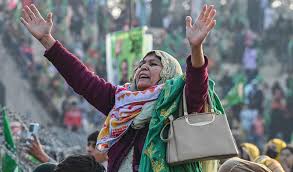Review By: Waniyyah Hassan
The author, commodore Dr. Sajid Mahmood Shahzad SI (M) is a retired naval officer. He joined the Pakistan Navy in 1985 as an operation branch officer. His area of practice was the Gunnery Branch from PNS BAHADUR, Karachi. He is a graduate of the National Defence University, Islamabad in IR. Furthermore, he earned his doctorate from Punjab University, Lahore. He served as the Director of Maritime Affairs and environmental control at Naval Headquarters, Islamabad. He was a part of the mission in China for the construction of frontline warships for the Pakistan Navy. The author has a great observation of maritime Affairs and mostly writes on it too. This book holds great significance as Pakistan is unaware of its maritime potential as of sea blindness which states the lack of awareness and interest of the sea. The author has initiated his step towards the research in blue economy related to Pakistan which was needed from the initial times. This book also serves as a key to understanding maritime policies regarding the blue economy and will help future researchers to initiate a step in researching Pakistan’s potential for the maritime and blue economy. There are a total of 6 chapters in the book, from introduction to challenges, potentials, and recommendations. The author has kept putting pressure on Pakistan’s maritime potentials, and recommendations towards sustainable development goals. After the book was published many stakeholders insisted on the research in the maritime sector. Even the previous prime minister of Pakistan Imran Khan stated that 2020 was an era of Blue Economy.
Pakistan’s geo-strategic location plays a pivotal role in the South Asia. It is blessed with various living and non-living resources. Unfortunately due to the lack of will, and sea blindness, the government has never taken any initiative towards the discovery of resources through the sea waters. Pakistan has a total 290,000 sq. km area which is bigger than the Punjab and KP provinces merged. The writer states that we can find minerals through the 1 km of this belt if we do the area mapping seriously.
The concept of a blue economy is related to the economy generated through the means of water, mainly to achieve a sustainable economy. In 2007 the European Union banned Pakistan from exporting fishes due to unhygienic and old machinery for the preservation of the fish. Later on it was lifted but still work has not been done to improve the quality of the fish shipment.
The introductory chapter talks about Pakistan’s potential and CPEC as a blessing to Pakistan. It has a rich exclusive economic zone (EEZ), major ports, fisheries, minerals, living organisms that are yet to be discovered, and challenges which are faced by Pakistan’s maritime domain such as maritime terrorism, piracy, human smuggling, and pollution. The later chapters introduce the table explanation of Pakistan’s fishing industry, the living resources in detail. The chapters also included the challenges in depth and how to counter them. Moreover, the interest of major powers such as US, China in the Indian Ocean region is described in the text eminently. The author has concluded various organizations’ establishment linked with the maritime security domain such as IMO, SOLAS, UNCLOS etc.
In the conclusion remarks the author has revised and put pressure on Pakistan’s maritime policies to be revised. The neo-realism theory by the author states the country to survive by securing its interests and Pakistan should act as a rational actor in the international arena. Solve the Sir Creek issue which is needed to be resolved by track 2 diplomacy. Pakistan needs a revised policy regarding maritime. Regional cooperation is required. The NMDCP (National Maritime Contingency Plan) must be produced to combat maritime disasters.
Although the author has removed some of the sea blindness for the readers, and the author’s book is a little effort towards it. He has used fundamental language which is understandable to every reader. Still, he has mentioned that he has left a research gap in his book for further researchers. The author has managed to mention all of the challenges, and opportunities and bind the recommendations perfectly, but he has not mentioned the ways through which Pakistan can extract the minerals from the sea as Pakistan is a weaker state in terms of economy. Also, he has not addressed how to take the locals in trust for the maritime blue economy initiatives as we all know that people in Baluchistan are vulnerable to the threat of non-state actors and recent attacks on CPEC have created a vacuum between the people and the government.
Recommendations and conclusions can be drawn easily from the author’s perspective. Pakistan needs a serious policy towards the maritime domain, its security, and its betterment. For export, fish canning should be introduced with new preserving methods. The Pakistani media should influence the citizens to view the importance of the seas and to remove sea blindness. For the government, initiatives should be made; there should be a body for maritime and blue economy with the collaboration of the Pakistan Navy, and public and private sectors. Pakistan’s universities should create researchers who can contribute to new material regarding the blue economy. We have the potential but we are unable to take the initiative.
















